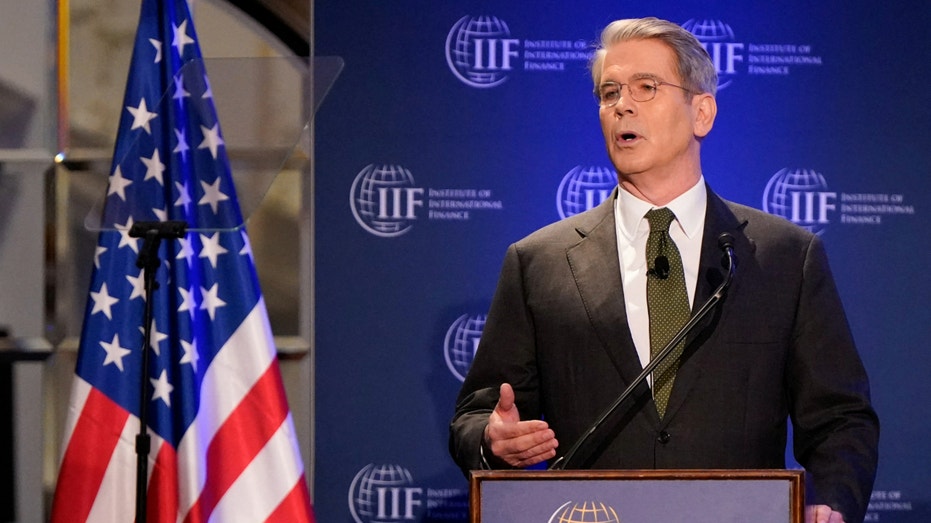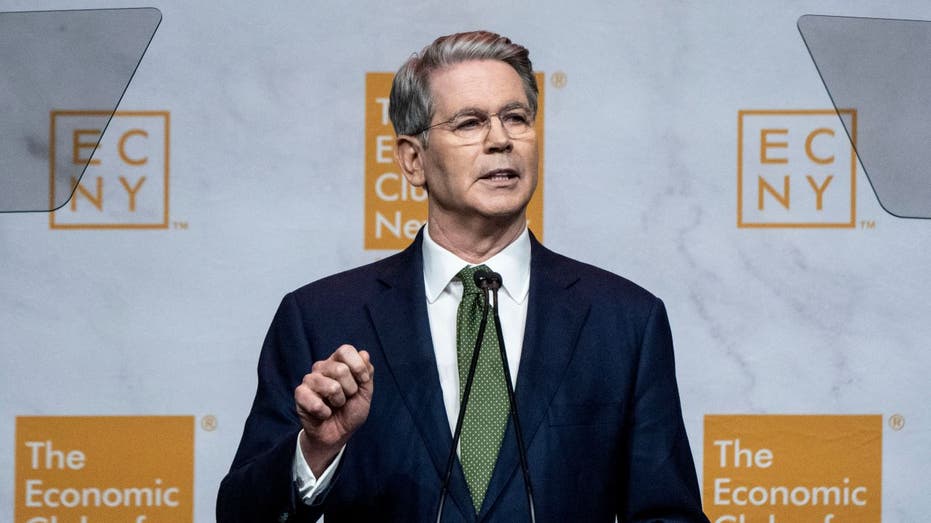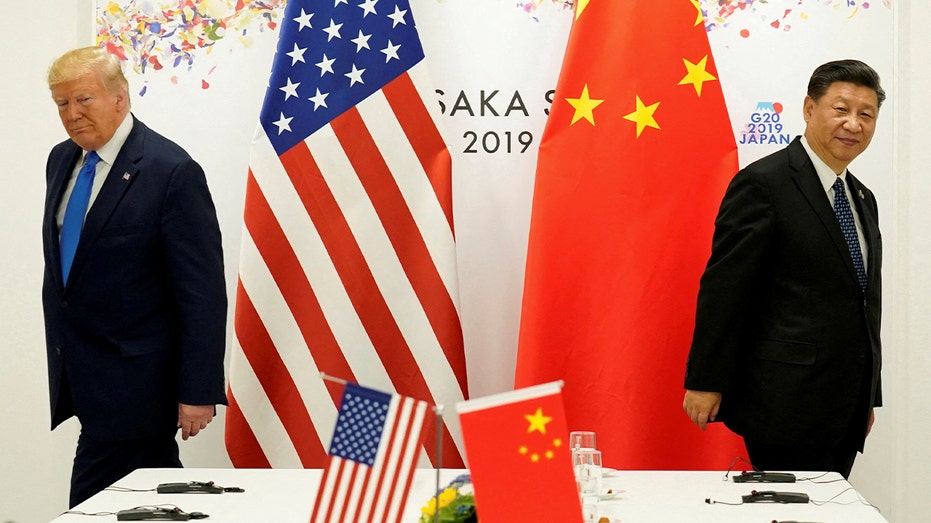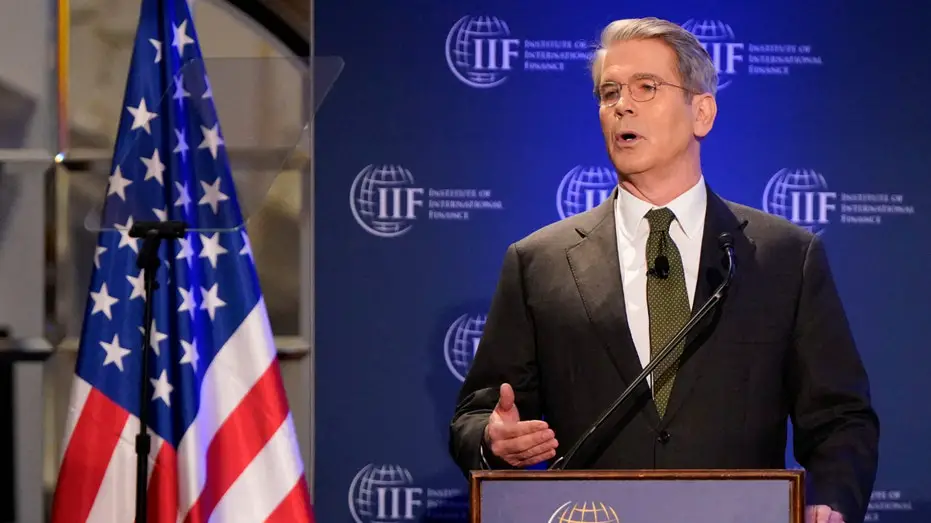Unleash Prosperity senior fellow EJ Antoni discusses President Donald Trumps trade negotiations with China on Varney & Co.
Treasury Secretary Scott Bessent on Wednesday said that there’s an opportunity for a “big deal” with China to lower tariffs if Beijing is willing to take steps to rebalance its economy.
Bessent delivered keynote remarks at the Institute of International Finance (IIF) and participated in a question-and-answer session in which he said the U.S. and China could make a deal on tariffs if China is willing to adjust its economy toward more consumption and less of a reliance on manufacturing exports.
“There is an opportunity for a big deal here,” Bessent said. “The U.S. is looking to rebalance to more manufacturing. The identity of that would be less consumption.”
“If China is serious on less dependence on export-led manufacturing growth and a rebalancing toward a domestic economy – I think they use the term dual circulation, well, right now it’s really singular circulation. And if they want to rebalance, let’s do it together. This is an incredible opportunity,” Bessent said.
TRUMP HINTS AT CUTTING CHINA TARIFFS ‘SUBSTANTIALLY’ FROM 145%

Treasury Secretary Scott Bessent delivers remarks at the Institute of International Finance (IIF) Global Outlook Forum on sidelines of the IMF and World Bank’s 2025 annual Spring Meetings in Washington, D.C., on April 23, 2025. (Reuters/Elizabeth Frantz / Reuters)
During his keynote address, Bessent outlined why the Trump administration believes China’s economic system needs to be rebalanced.
“Recent data shows the Chinese economy tilting even further away from consumption toward manufacturing. China’s economic system, with growth driven by manufacturing exports, will continue to create even more serious imbalances with its trading partners if the status quo is allowed to continue,” he said.
“China’s current economic model is built on exporting its way out of its economic troubles. It’s an unsustainable model that is not only harming China, but the entire world,” Bessent explained. “China needs to change. The country knows it needs to change. Everyone knows it needs to change, and we want to help it change, because we need rebalancing too.”
US COURT OF INTERNATIONAL TRADE SIDES WITH TRUMP IN TARIFF CASE

Bessent said that there’s an opportunity for the U.S. to do a “big deal” with China on trade. (Victor J. Blue/Bloomberg via Getty Images / Getty Images)
The treasury secretary said that if China pivots its economy to focus more on domestic consumption, it would help the international economic system adjust to a more stable equilibrium.
“China can start by moving its economy away from export overcapacity and towards supporting its own consumers and domestic demand,” Bessent explained. “Such a shift would help with global rebalancing that the world desperately needs.”
IMF CUTS US ECONOMIC GROWTH FORECAST OVER TRADE TENSIONS, POLICY UNCERTAINTY
The IIF conference that Bessent spoke at was being held on the sidelines of the spring meetings of the International Monetary Fund (IMF) and the World Bank in Washington, D.C.
In his remarks, Bessent called for international financial institutions to take steps to encourage China’s rebalancing. He urged the IMF to “call out countries like China that have pursued globally distorted policies and opaque currency practices.”

Trump has signaled he may lower the 145% tariffs on most imported goods from China as the U.S. looks to negotiate new trade terms. (Kevin Lamarque/File Photo / Reuters)
Bessent also urged the World Bank to “set firm graduation timelines” for countries that have met the criteria to no longer receive loans from the bank, adding that “treating China, the second largest country in the world, as a developing country is absurd.”
“While it has been at the expense of many Western markets, China’s rise has been rapid and impressive. If China wants to play a role in the global economy commensurate with its actual importance, then the country needs to graduate up,” Bessent said. “We welcome that.”
President Donald Trump on Tuesday signaled that his administration may lower the tariffs he imposed on China, which rose to 145% after he last hiked the import taxes, as the White House looks to potentially de-escalate trade tensions ahead of negotiations with Chinese leaders.
GET FOX BUSINESS ON THE GO BY CLICKING HERE
The president said “145% is very high, and it won’t be that high… No, it won’t be anywhere near that high. It’ll come down substantially, but it won’t be zero.”
This is a developing story. Please check back for updates.

